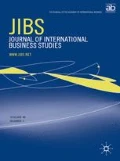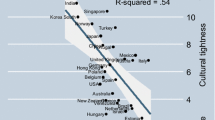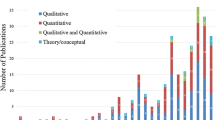Abstract
In a departure from prior studies presuming a beneficial experience effect in foreign direct investment (FDI), the present paper examines the conditions under which FDI experience may actually harm subsequent subsidiaries. We argue that multinational enterprises (MNEs) may draw erroneous inferences and learn incorrectly from their early expansions when new to a dissimilar culture, because their learning abilities are eroded by cultural differences. We posit that the characteristics of an MNE's international expansion, including scope, pace, rhythm, and entry mode, moderate this negative experience effect by influencing the MNE's learning ability in foreign cultures. Using a data set of FDIs by South Korean MNEs between 1990 and 2006, we find a positive relationship between subsidiary mortality and experience when an MNE has a low level of experience in a dissimilar culture. This relationship is weaker if the MNE's prior FDI has been dispersed across different cultures, is stronger if it expanded internationally at a fast pace, and becomes negative once the MNE has accumulated a high level of experience in the host culture. We conclude that, when expanding into dissimilar cultures, MNEs must establish mechanisms to mitigate incorrect learning and reexamine the correctness of inferences drawn from past experience before applying them.

Similar content being viewed by others
Notes
Expanding in a host culture may allow experience to be gained at both the MNE level (e.g., establishing and managing a subsidiary within the host culture) and the subsidiary level (e.g., daily operations in the host culture). Since major decisions for establishing and managing a new subsidiary are usually made at the MNE's headquarters, the experience gained at the headquarters level should be more relevant to the mortality of a subsequent subsidiary. We therefore focus on experience gained at the MNE level.
All results for the robustness tests are available from the authors on request.
References
Allison, P. D. 1982. Discrete-time methods for the analysis of event histories. In S. Leinhardt (Ed), Sociological methodology: 61–98. San Francisco: Jossey-Bass.
Barkema, H. G., & Drogendijk, R. 2007. Internationalising in small, incremental or larger steps? Journal of International Business Studies, 38 (7): 1132–1148.
Barkema, H. G., Bell, J. H. J., & Pennings, J. M. 1996. Foreign entry, cultural barriers, and learning. Strategic Management Journal, 17 (2): 151–166.
Barkema, H. G., Shenkar, O., Vermeulen, F., & Bell, J. H. J. 1997. Working abroad, working with others: How firms learn to operate international joint ventures. Academy of Management Journal, 40 (2): 426–442.
Baum, J. A. C., & Ingram, P. 1998. Survival-enhancing learning in the Manhattan hotel industry, 1898–1980. Management Science, 44 (7): 996–1016.
Bhagat, R. S., Kedia, B. L., Harveston, P. D., & Triandis, H. C. 2002. Cultural variations in the cross-border transfer of organizational knowledge: An integrative framework. Academy of Management Review, 27 (2): 204–221.
Bjorkman, I., Stahl, G. K., & Vaara, E. 2007. Cultural differences and capability transfer in cross-border acquisitions: The mediating roles of capability complementarity, absorptive capacity, and social integration. Journal of International Business Studies, 38 (4): 658–672.
Carter, D. A., Pantzalis, C., & Simkins, B. J. 2003. Asymmetric exposure to foreign-exchange risk: Financial and real option hedges implemented by US multinational corporations, Working paper, Oklahoma State University, http://ssrn.com/abstract=387082, accessed 2 May 2012.
Castellaneta, F. 2011. The boundaries of bounded rationality: Experience, superstition and the weight of activity load in management buyouts, Croma Working Paper Series, http://www.croma.unibocconi.it, accessed 3 April 2012.
Chang, S.-J., & Rhee, J. H. 2011. Rapid FDI expansion and firm performance. Journal of International Business Studies, 42 (8): 979–994.
Cohen, W. M., & Levinthal, D. A. 1990. Absorptive capacity: A new perspective on learning and innovation. Administrative Science Quarterly, 35 (1): 128–152.
Cox, D. R., & Oakes, D. 1984. Analysis of survival data, monographs on statistics and applied probability. London: Chapman & Hall.
Cyert, R. M., & March, J. G. 1963. A behavioural theory of the firm. Cambridge: Blackwell Business.
De Holan, P. M., & Phillips, N. 2004. Remembrance of things past? The dynamics of organizational forgetting. Management Science, 50 (11): 1603–1613.
Delios, A., & Beamish, P. W. 2001. Survival and profitability: The roles of experience and intangible assets in foreign subsidiary performance. Academy of Management Journal, 44 (5): 1028–1038.
Dierickx, I., & Cool, K. 1989. Asset stock accumulation and sustainability of competitive advantage. Management Science, 35 (12): 1504–1511.
Doyle, J. R. 1999. Elicitation and context effects in judgments: Fixed sum versus fixed scale frames. Management Science, 45 (7): 972–979.
Eisenhardt, K. M., & Martin, J. A. 2000. Dynamic capabilities: What are they? Strategic Management Journal, 21 (10–11): 1105–1121.
Fang, Y., Wade, M., Delios, A., & Beamish, P. W. 2007. International diversification, subsidiary performance, and the mobility of knowledge resources. Strategic Management Journal, 28 (10): 1053–1064.
Feldman, J. 1986. On the difficulty of learning from experience. In H. P. Sims & D. A. Gioa (Eds), The thinking organization: Dynamics of organizational social cognition: 263–292. San Francisco: Jossey-Bass.
Finkelstein, S., & Haleblian, J. 2002. Understanding acquisition performance: The role of transfer effects. Organization Science, 13 (1): 36–47.
Fiol, C. M., & Lyles, M. A. 1985. Organizational learning. Academy of Management Review, 10 (4): 803–813.
Gaur, A. S., & Lu, J. W. 2007. Ownership strategies and survival of foreign subsidiaries: Impacts of institutional distance and experience. Journal of Management, 33 (1): 84–110.
Gupta, V., Hanges, P. J., & Dorfman, P. 2002. Cultural clusters: methodology and findings. Journal of World Business, 37 (1): 11–15.
Haleblian, J., & Finkelstein, S. 1999. The influence of organizational acquisition experience on acquisition performance: A behavioral learning perspective. Administrative Science Quarterly, 44 (1): 29–56.
Hashai, N. 2011. Sequencing the expansion of geographic scope and foreign operations by “born global” firms. Journal of International Business Studies, 42 (8): 995–1015.
Heimeriks, K. H. 2010. Confident or competent? How to avoid superstitious learning in alliance portfolios. Long Range Planning, 43 (1): 57–84.
Hocking, J. B., Brown, M., & Harzing, A. 2007. Balancing global and local strategic contexts: Expatriate knowledge transfer, applications, and learning within a transnational organization. Human Resource Management, 46 (4): 513–533.
Hofstede, G. 1980. Culture's consequences: International differences in work-related values. London: Sage.
House, R. J., Hanges, P. J., Javidan, M., Dorfman, P., & Gupta, V. 2004. Culture, leadership, and organizations: The GLOBE study of 62 societies. Thousand Oaks, CA: Sage Publications.
Huber, G. P. 1991. Organizational learning: The contributing processes and the literatures. Organization Science, 2 (1): 88–115.
Hutzschenreuter, T., & Voll, J. 2008. Performance effects of “added cultural distance” in the path of international expansion: The case of German multinational enterprises. Journal of International Business Studies, 39 (1): 53–70.
Ingram, P., & Baum, J. A. C. 1997. Opportunity and constraint: Organizations’ learning from the operating and competitive experience of industries. Strategic Management Journal, 18 (S1): 75–98.
Inkpen, A. C., & Tsang, E. W. K. 2007. Learning and strategic alliances. The Academy of Management Annals, 1 (1): 479–511.
Javidan, M., Stahl, G. K., Brodbeck, F. C., & Wilderom, C. P. M. 2005. Cross-border transfer of knowledge: Cultural lessons from Project GLOBE. Academy of Management Executive, 19 (2): 59–76.
Johanson, J., & Vahlne, J.-E. 1977. The internationalization process of the firm: A model of knowledge development and increasing foreign market commitments. Journal of International Business Studies, 8 (1): 25–34.
Kim, J.-Y., Kim, J.-Y., & Miner, A. S. 2009. Organizational learning from extreme performance experience: The impact of success and recovery experience. Organization Science, 20 (6): 958–978.
Kim, T.-Y., Delios, A., & Xu, D. 2010. Organizational geography, experiential learning and subsidiary exit: Japanese foreign expansions in China, 1979–2001. Journal of Economic Geography, 10 (4): 579–597.
Kirkman, B. L., Lowe, K. B., & Gibson, C. B. 2006. A quarter century of Culture's Consequences: A review of empirical research incorporating Hofstede's cultural values framework. Journal of International Business Studies, 37 (3): 285–320.
Kogut, B., & Singh, H. 1988. The effect of national culture on the choice of entry mode. Journal of International Business Studies, 19 (3): 411–432.
Kostova, T., & Zaheer, S. 1999. Organizational legitimacy under conditions of complexity: The case of the multinational enterprise. Academy of Management Review, 24 (1): 64–81.
Lance, C. E. 1988. Residual centering, exploratory and confirmatory moderator analysis, and decomposition of effects in path models containing interactions. Applied Psychological Measurement, 12 (2): 163–175.
Lane, P. J., Salk, J. E., & Lyles, M. A. 2001. Absorptive capacity, learning, and performance in international joint ventures. Strategic Management Journal, 22 (12): 1139–1161.
Levinthal, D. A., & March, J. G. 1993. The myopia of learning. Strategic Management Journal, 14 (S2): 95–112.
Levitt, B., & March, J. G. 1988. Organizational learning. Annual Review of Sociology, 14 (1): 319–340.
Li, J. 1995. Foreign entry and survival: Effects of strategic choices on performance in international markets. Strategic Management Journal, 16 (5): 333–351.
Li, S., & Scullion, H. 2006. Bridging the distance: Managing cross-border knowledge holders. Asia Pacific Journal of Management, 23 (1): 71–92.
Lin, W. T. 2012. Family ownership and internationalization processes: Internationalization pace, internationalization scope, and internationalization rhythm. European Management Journal, 30 (1): 47–56.
Lu, J. W., & Beamish, P. W. 2001. The internationalization and performance of SMEs. Strategic Management Journal, 22 (6/7): 565–586.
Lubatkin, M., Calori, R., Very, P., & Veiga, J. F. 1998. Managing mergers across borders: A two-nation exploration of a nationally bound administrative heritage. Organization Science, 9 (6): 670–684.
Luostarinen, R. 1980. Internationalization of the firm. Helsinki: Helsinki School of Economics.
Lyles, M. A. 1987. Common mistakes of joint venture experienced firms. Columbia Journal of World Business, 22 (2): 79–85.
Lyles, M. A., & Salk, J. E. 1996. Knowledge acquisition from foreign parents in international joint ventures: An empirical examination in the Hungarian context. Journal of International Business Studies, 27 (5): 877–903.
Makino, S., & Delios, A. 1996. Local knowledge transfer and performance: Implications for alliance formation in Asia. Journal of International Business Studies, 27 (5): 905–927.
March, J. G., Sproull, L. S., & Tamuz, M. 1991. Learning from samples of one or fewer. Organization Science, 2 (1): 1–13.
Mowery, D. C., Oxley, J. E., & Silverman, B. S. 1996. Strategic alliances and interfirm knowledge transfer. Strategic Management Journal, 17 (Special Issue): 77–91.
Nadolska, A., & Barkema, H. G. 2007. Learning to internationalise: The pace and success of foreign acquisitions. Journal of International Business Studies, 38 (7): 1170–1186.
O’Grady, S., & Lane, H. W. 1996. The psychic distance paradox. Journal of International Business Studies, 27 (2): 309–333.
Parkhe, A. 1991. Interfirm diversity, organizational learning, and longevity in global strategic alliances. Journal of International Business Studies, 22 (4): 579–601.
Petersen, B., Pedersen, T., & Lyles, M. A. 2008. Closing knowledge gaps in foreign markets. Journal of International Business Studies, 39 (7): 1097–1113.
Prashantham, S., & Floyd, W. S. 2012. Routine microprocesses and capability learning in international new ventures. Journal of International Business Studies, 43 (6): 544–562.
Ronen, S., & Shenkar, O. 1985. Clustering countries on attitudinal dimensions: A review and synthesis. Academy of Management Review, 10 (3): 435–454.
Shaver, J. M., Mitchell, W., & Yeung, B. W. 1997. The effect of own-firm and other-firm experience on foreign direct investment survival in the United States, 1987–92. Strategic Management Journal, 18 (10): 811–824.
Shenkar, O. 2001. Cultural distance revisited: Towards a more rigorous conceptualization and measurement of cultural differences. Journal of International Business Studies, 32 (3): 519–535.
Simonin, B. L. 1999. Transfer of marketing know-how in international strategic alliances: An empirical investigation of the role and antecedents of knowledge ambiguity. Journal of International Business Studies, 30 (3): 463–490.
Sitkin, S. 1992. Learning through failure: The strategy of small losses. In B. M. Staw & L. L. Cummings (Eds), Research in organizational behavior: 231–266. Greenwich, CT: JAI Press.
Studenmund, A. H. 2001. Using econometrics: A practical guide, (4th edn). Boston: Addison-Wesley.
Tallman, S., & Li, J. 1996. Effects of international diversity and product diversity on the performance of multinational firms. Academy of Management Journal, 39 (1): 179–196.
Thomas, D., Eden, L., Hitt, M., & Miller, S. 2007. Experience of emerging market firms: The role of cognitive bias in developed market entry and survival. Management International Review, 47 (6): 845–867.
Tsang, E. W. K. 1999. Internationalization as a learning process: Singapore MNCs in China. Academy of Management Executive, 13 (1): 91–101.
Tsang, E. W. K., & Zahra, S. A. 2008. Organizational unlearning. Human Relations, 61 (10): 1435–1462.
Uhlenbruck, K. 2004. Developing acquired foreign subsidiaries: The experience of MNEs in transition economies. Journal of International Business Studies, 35 (2): 109–123.
Vermeulen, F., & Barkema, H. 2001. Learning through acquisitions. Academy of Management Journal, 44 (3): 457–476.
Vermeulen, F., & Barkema, H. 2002. Pace, rhythm, and scope: Process dependence in building a profitable multinational corporation. Strategic Management Journal, 23 (7): 637–653.
Yamaguchi, K. 1991. Event history analysis. Newbury Park, CA: Sage.
Zollo, M. 2009. Superstitious learning with rare strategic decisions: Theory and evidence from corporate acquisitions. Organizational Science, 20 (5): 894–908.
Acknowledgements
We thank Editors Ulf Andersson and Mary Yoko Brannen for their kind guidance and three anonymous reviewers for their constructive insights. Our appreciation also goes to the 2009 Academy of International Business Annual meeting reviewers and Yonsei University seminar participants for their helpful comments on the paper. This work was supported by the National Research Foundation of Korea, grant-funded by the Korean government (NRF-2012-S1A3A2–2012S1A3A2033412). Sangcheol Song was the recipient.
Author information
Authors and Affiliations
Corresponding author
Additional information
Accepted by Ulf Andersson, Area Editor, 23 September 2012. This paper has been with the authors for two revisions.
Appendices
APPENDIX A
APPENDIX B
APPENDIX C
Rights and permissions
About this article
Cite this article
Zeng, Y., Shenkar, O., Lee, SH. et al. Cultural differences, MNE learning abilities, and the effect of experience on subsidiary mortality in a dissimilar culture: Evidence from Korean MNEs. J Int Bus Stud 44, 42–65 (2013). https://doi.org/10.1057/jibs.2012.30
Received:
Revised:
Accepted:
Published:
Issue Date:
DOI: https://doi.org/10.1057/jibs.2012.30




